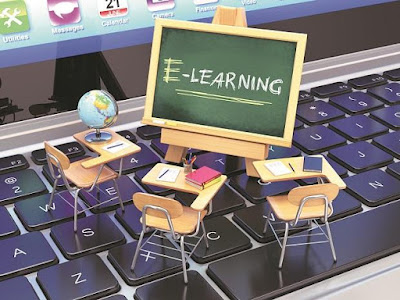B002- Adapting to Online Classes during COVID-19
The very topic is suggestive of a temporary shift of
instructional delivery to an alternate delivery model due to crisis
circumstances created by the Novel Corona Virus 2019. To respond to this situation, the world over, schools and
educators are trying to transfer their normal curriculum to an online format and
it is not an easy job.
Even the other stakeholders- the parents and students
are struggling to embrace this change.
This pandemic pedagogy might be a temporary and
emergency shift but keeping the unknown future in view might well pave the way
for a more prepared pedagogy for a variety of learners and circumstances that
might crop up in the future.
For teaching to enable the powerful learning experience
the teacher has to fluidly shift among a range of roles including learning designer, facilitator networker and advisor
who counsels, mentors, and tutors depending on what is most needed to promote
student learning.
Such a shift in the teaching-learning process because of COVID-19 calls
for proper training and support by the school for its educators and also a
careful instructional design and planning for effective learning outcome for
the students.
Remote teaching or virtual teaching is different from physical or face to face teaching.
Knowing how to teach in the physical world does not
mean that one can log in on to an online tool and he/she will be effective at
teaching in the virtual world.
Of course, the basic foundations of learning are the
same. But the way one expresses these in virtual places is totally different.
For example, if you are trying to assess students
learning online, a teacher who does not have experience teaching online might
revert to using multiple-choice tests or uploading worksheets.
One must note that there are far more options for
assessing learning in a virtual classroom than in a traditional class room which a teacher must be taught and trained to adopt.
For equipping oneself for online teaching during this COVID19 pandemic one must
learn new approaches for authentic assessment in a virtual space.
Teachers need support to learn skills like authentic
online assessment and handling other digital tools so that virtual learning or
learning in the digital platform becomes as lively and interesting as face to face
teaching in a classroom.
This will arouse and sustain the interests of the students
who are new to it, with their minds filled with doubts
and apprehensions of a new learning system and of a seemingly unfriendly
surroundings, quite different from a physical classroom setting.
Now speaking of students adaptability to such a new
system or set up owing to Corona Pandemic, it would not be a very comfortable or pleasant one.
If not totally hostile, they will certainly be
confronted with a system that has disrupted the old ways of learning and
interaction in which they were comfortably rooted for such a long time.
Some might feel isolated while others might feel the
process to be a horrendously boring and painful experience as never before.
Technical difficulties like submitting an assignment,
accessing a program, and using Excel are some of the areas where students face
a few hiccups and which can lead them to feel frustrated and upset.
The course content if it is dis-organised and not
designed with a structure in mind can make the students upset and demotivated.
To address these issues or to obviate them we need to
develop an effective and engaging course which should switch our focus from an
individual teacher’s preferred approach to what best meets students need.
Thus when it comes to online classes or remote
learning, simplicity is the key. The goal should be for all instructions to be
as easy to access as possible for both the student and the teacher. Tasks can
be technologically simple to complete but still require in depth of knowledge.
Director/Principal
Delhi World Public School Siliguri
(Former Principal DPS Siliguri )





Comments
Post a Comment